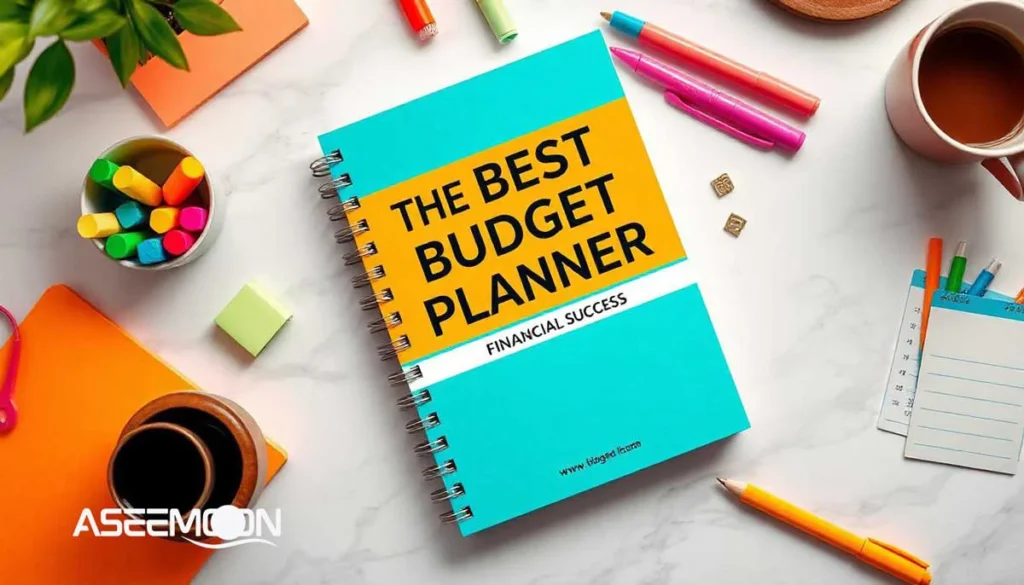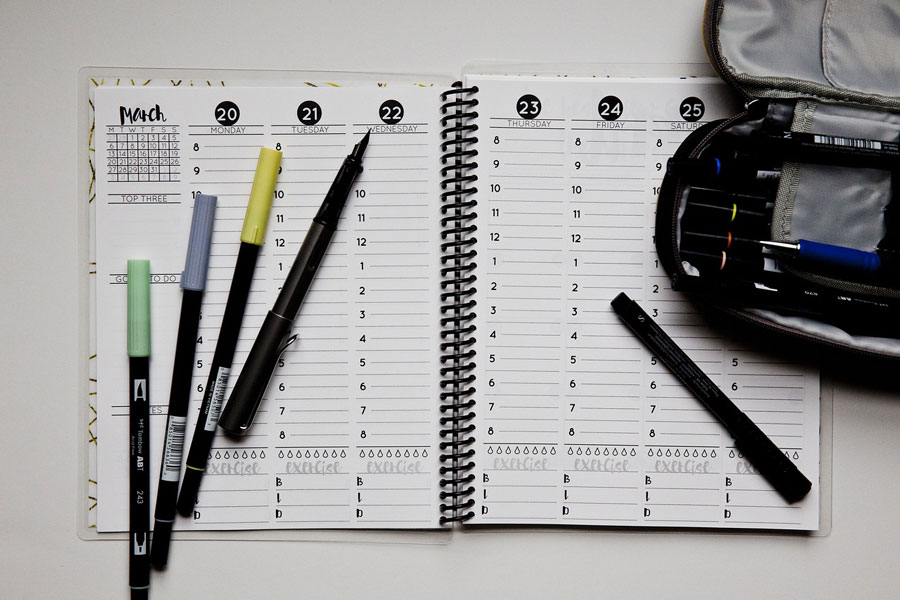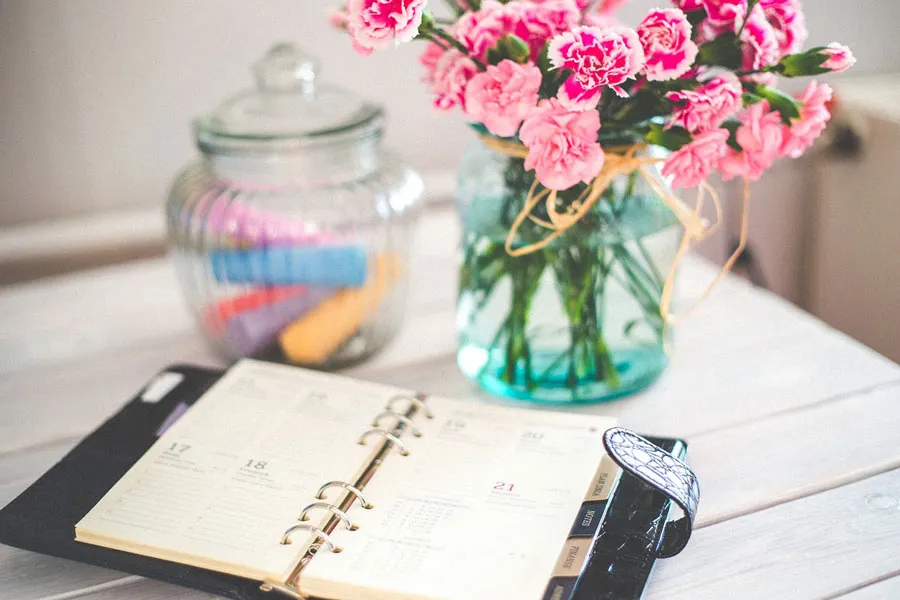Introduction to Budget Planner Books
Are you tired of living paycheck to paycheck, barely getting by, and feeling stressed about the bottom line to the point that even your relationships are suffering? A budget planner book can help you manage the mess in your finances and achieve financial success. But how do you choose the best out of all available in this plethora of choices?
This is a comprehensive guide on every consideration to be made while choosing budget planner books, the types of planners available, and some very popular budget planner books available in today’s market. Please stay with ASEEMOON.
What is a Budget Planner Book?
A budget planner book, also known as a budgeting workbook or financial planner, is a physical or virtual book that aims to help people organize their finances.
The tool is designed to assist in creating and managing a personal or household budget, setting the user on the right path toward making informed decisions about their finances and achieving predetermined goals.
A standard budget planner book will include various templates, worksheets, and exercises that help users track their income and expenses, set financial goals, and monitor progress.
Record all sources of income, fixed and variable costs, and debt payments—know how much money comes into your pocket each month and where it goes. Set your financial goals by determining what needs to be done in the long and short term: save up for something important, repay debt, or build an emergency fund.
Create a budget plan that divides income into housing, transportation, food, entertainment, and savings to ensure expenses conform to financial goals.
Keep track of spending: Monitoring daily, weekly, or monthly expenses will ensure that one stays within the budgeted limit and has leeway to adjust where necessary.
Manage one’s debt: Find out how much is owed on each debt, when it is due, and at what interest rate to devise a clear plan to pay it off efficiently.
Build savings: Save some of your earnings for short—and long-term goals, such as building your emergency fund, retirement savings, or money for specific purchases.
Track and review your financial progress: Use budget data to identify what needs adjustment, acknowledge your successes, and make adjustments to keep you on target.
Other features that could be added to a budget planner book are:
- Calculators or formulae that can help with budgeting calculations
- Note space, reminders, and inspirational quotes
- Specific, goal-oriented savings templates
- Tips and advice on personal finance and budgeting
Digital copies may be password-protected, auto-calculating, or integrated with online banking.
Benefits of Using a Budget Planner Book
It clearly defines an individual’s finances and net worth by giving users a budget template in which they can track their personal or household budget, income, and expenses. This increased awareness can help you make better financial decisions, avoid overspending, and live within your means.
It provides all the information about your spending and makes you very conscious of what you have been doing. You may find yourself spending money on things you don’t need, maybe a subscription or something. Budgeting will help you reconsider your spending habits and speed up your process toward your financial goals.
It Helps You Prioritize Spending and Saving: A budget can help you break things down into needs versus wants, likes, bills, and discretionary spending. Identify areas where you can cut back on spending to increase your savings. Set spending limits and allocate money toward savings or debt payments.
Knowing exactly how much money you have available and where it’s going will help you better manage your money and avoid unnecessary expenses.
For many people, financial stress is a common issue that is usually related directly to how out of control someone feels. A budget template can thus help people regain control and reduce this stress.
Paying bills on time can be a plus in improving one’s credit score. You can use a budget tracker to ensure you never give up on your commitment and pay your bills on time to keep your credit score healthy.
It enables better decisions. A budget template will help you make sound financial decisions by showing your real income and expenditures. Having this at your fingertips helps you make informed decisions on spending and saving and avoid making impulsive or unnecessary purchases.
Key Features to Look for in a Budget Planner Book
Choosing the right budget planner book can never be underestimated since it can highly impact your financial management and success. Here are some essential features to check while selecting a budget planner book:
Comprehensive Financial Tracking
A good budget planner book needs detailed sections that help you trace every detail of your finances. Look for planners that have:
Logs for Income and Expense: Record your earnings and expenditures to understand your spending behavior and where improvement is needed.
Savings and Investment Tracking: Monitor progress on goals with savings and investments so that one never strays from the goals set up in building a financial life.
Setting of Goals and Progress Monitoring
Budget book planners should have features that guide one in setting and following up on these financial goals. In most books, among the key elements are the following:
Short-term and Long-term Goals: Sections dedicated to both immediate and future financial goals that help give you a way of planning the various stages of your financial journey.
Visual Progress Trackers: This is achieved using graphs, charts, and checklists. All these features show progress in a visual representation, which helps one to be motivated and sincere in adhering to their budget.
User-Friendly Design and Layout
The budget planner book’s design and layout are critical to its usability. Look for the following attributes:
Ease of Use: Intuitive layouts and clear instructions make filling in and reviewing your financial information easy.
Aesthetic Appeal: The design is more visually appealing, enabling one to enjoy budgeting and engage in regular applications—including other resources and tools.
Additional Resources and Tools
High-quality budget planner books often include extra resources and tools to make your financial planning experience exceedingly efficient and effective.
Consider planners that include:
Worksheets and Templates: These are pre-designed, formatted pages for some degree of functions remotely relevant to personal finance—from bill tracking and debt repayment to expense categorization. This generally saves you time when handling these areas.
Online Tools and Communities: Most of the tools are now online, thus facilitating integration and access to online communities where you can share tips, seek advice, and stay focused with fellow like-minded people.
With these key features in mind, you can ensure that you pick a budget planner book that will help you achieve your financial goals.
Top Budget Planner Books on the Market
Finding the right budget planner book as a beginner can set the foundation for effective financial management. Here are some of the best budget planner books tailored for beginners:
The Budget Book by Clever Fox
The Budget Book by Clever Fox is designed specifically for beginners with its straightforward layout and easy-to-follow instructions.
The Personal Finance Planner by Erin Condren
Known for its vibrant designs and comprehensive layout, the Erin Condren Personal Finance Planner is perfect for those who enjoy a bit of flair with their financial planning.
The Simple Budget Planner by Blue Sky
The Simple Budget Planner by Blue Sky, with its minimalistic and intuitive layout, is designed to simplify the budgeting process.
The Money Planner by Limitless Mindset
The Money Planner by Limitless Mindset is a comprehensive tool for beginners who want to gain control over their finances through a clear structure.
The Financial Peace Planner by Dave Ramsey
Created by financial guru Dave Ramsey, this planner is based on his proven methods for achieving financial peace and is excellent for beginners.
How to Choose the Right Budget Planner Book for You
When selecting a budget planner book as a beginner, consider the following:
- Ease of Use: Ensure the planner is simple to understand and use.
- Features: Look for planners with the necessary tools for tracking your income, expenses, and financial goals.
- Design: Choose a design that you find appealing and motivating, as this will encourage regular use.
Comparing Different Budget Planner Books
When choosing a budget planner book, it’s essential to compare various options to find the one that best suits your financial needs and preferences. Here’s a detailed comparison of some popular budget planner books:
| Name | Overview | Features | Pros |
|---|---|---|---|
| The Budget Book by Clever Fox | The Budget Book by Clever Fox is designed specifically for beginners with its straightforward layout and easy-to-follow instructions. | Monthly and weekly budgeting sections Expense trackers Goal setting pages Bill tracking |
User-friendly design Motivational stickers and bookmarks Portable size |
| The Personal Finance Planner by Erin Condren | Known for its vibrant designs and comprehensive layout, the Erin Condren Personal Finance Planner is perfect for those who enjoy a bit of flair with their financial planning. | Detailed budgeting worksheets Savings and debt trackers Inspirational quotes |
Visually appealing and customizable Durable cover and high-quality paper Plenty of space for notes |
| The Simple Budget Planner by Blue Sky | The Simple Budget Planner by Blue Sky is designed to simplify the budgeting process with its minimalistic and intuitive layout. | Monthly income and expense tracking Bill payment checklists Financial goal-setting pages |
Easy to use and navigate Clean, uncluttered design Affordable |
| The Simple Budget Planner by Blue Sky The Money Planner by Limitless Mindset |
The Money Planner by Limitless Mindset is a comprehensive tool for beginners who want to gain control over their finances through a clear structure. | Monthly budget overview Savings goals and debt repayment sections Weekly spending logs |
Encourages consistent financial tracking Motivational quotes and tips Compact and portable |
| The Financial Peace Planner by Dave Ramsey | Created by financial guru Dave Ramsey, this planner is based on his proven methods for achieving financial peace and is excellent for beginners. | Step-by-step budgeting guide Debt reduction plans Savings and investment trackers |
Practical advice and tips from a financial expert Encourages disciplined financial habits Comprehensive and detailed |
Tips for best the Use of Budget Planner Book
A budget planner book can be a powerful tool for managing your finances, but its effectiveness depends on how you use it. Here are some tips to maximize its potential:
Set Clear Financial Goals:
Define your “why”: Why are you budgeting? Is it to pay off debt, save for a down payment, or simply gain control of your finances? Having a clear purpose will keep you motivated.
Set SMART goals: Make your goals Specific, Measurable, Achievable, Relevant, and Time-bound. This will help you track your progress and stay on track.
Prioritize your goals: Not all goals are created equal. Determine which ones are most important and focus your efforts accordingly.
Track Your Income and Expenses:
Be consistent: Record every penny you earn and spend, even small purchases. This will give you a comprehensive picture of your financial situation.
Categorize your expenses: Group your spending into categories like housing, food, transportation, entertainment, etc. This will help you identify areas where you can cut back.
Use technology to your advantage: Consider using budgeting apps or spreadsheets to automate tracking and analysis.
Create a Realistic Budget:
Start with your needs: Allocate funds for essential expenses like housing, utilities, food, and transportation.
Allocate for wants: Include a budget for discretionary spending, but be mindful of your priorities and goals.
Leave room for savings: Allocate a specific amount to savings each month, even if it’s small.
Review and Adjust Regularly:
Review your budget monthly: Track your progress, identify areas where you’re overspending, and make adjustments as needed.
Adjust your budget as your circumstances change: Life is unpredictable. Be prepared to adapt your budget to income, expenses, or goals changes.
Don’t be afraid to start over: If your budget isn’t working for you, don’t be scared to start fresh.
Make it a Habit:
Set aside time for budgeting: Schedule a specific time each week or month to review your finances.
Make it a visual reminder: Keep your budget planner book visible to encourage use.
Involve your partner or family: If you’re budgeting as a household, involve everyone in the process to foster accountability and understanding.
Conclusion
Celebrate your successes: Acknowledge your progress and reward yourself for sticking to your budget.
Don’t be discouraged by setbacks: Everyone makes mistakes. Learn from them and adjust your approach accordingly.
Find a budgeting method that works for you: Many different budgeting methods are available. Experiment until you find one that you enjoy and can stick with.
Remember, a budget planner book is just a tool. Your commitment to using it effectively will make a difference in achieving your financial goals.



